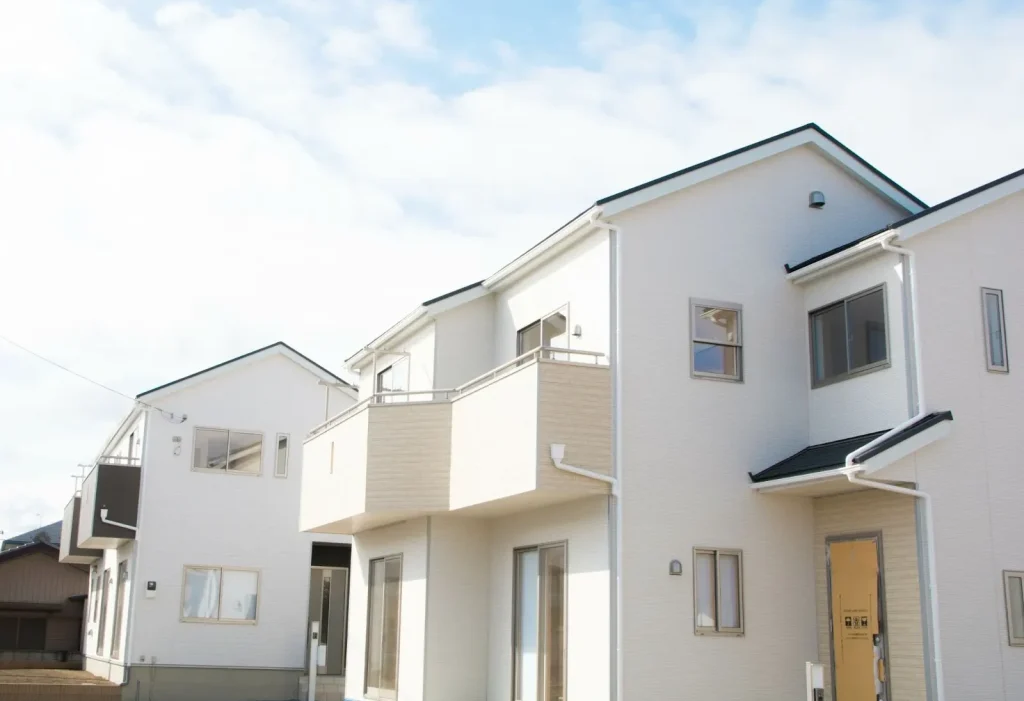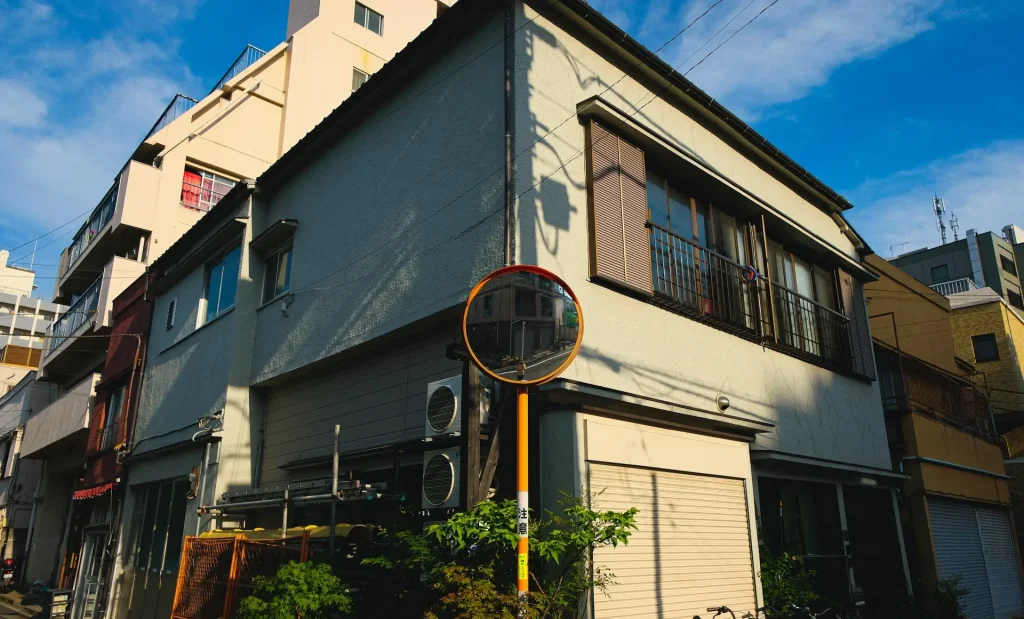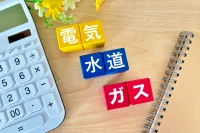How do foreigners buy a house in Japan? How to find and buy a house in Japan

Many foreigners would prefer to buy a home they own rather than rent if they are going to live in Japan permanently or for a long period of time. However, due to language and cultural differences, some may feel that buying a house in Japan is a hurdle.
This article explains in detail the process and precautions for foreigners buying a house in Japan, from how to find a property to the post-purchase procedures. If you are a foreigner thinking of buying a house in Japan, please refer to this article.
▼Goandup Picks Click here for recommended articles!
- Required before studying abroad! Goandup Nihongo+, an online Japanese language learning service
- This page introduces services for foreigners who wish to study in Japan or improve their Japanese language skills to learn Japanese online.
- Goandup Salon" community for foreigners living in Japan
- We introduce an online community where foreigners living in Japan can exchange information and interact with each other to support their life in Japan.
- Goandup Study" supports foreigners who want to study in Japan.
- This section introduces study abroad support services that provide comprehensive support to foreigners who wish to study in Japan, from preparation for study abroad to living in Japan.
- Where can I buy a prepaid SIM in Japan? Recommended SIM cards for foreigners are also introduced.
- How to purchase a prepaid SIM and suitable SIM cards for foreigners.
- The Complete Guide to Pocket Wi-Fi in Japan for Foreigners!
- We introduce how to select and recommend pocket Wi-Fi products that can be used conveniently in Japan.
- The Complete Guide to Finding a Job in Japan! Finding a job, changing jobs, and part-time work for foreigners
- This site provides foreigners who want to work in Japan with comprehensive information on how to find a job, recommended job sites, and other information necessary to find a job.
What foreigners need to know when buying a house in Japan

If you are going to live in Japan permanently or for a long period of time, many people would prefer to buy a home they own rather than rent. There are several important points to understand when buying a house in Japan for a foreigner. Here we will explain in detail the market price of a house in Japan, restrictions on foreigners buying a house or land, and some important points regarding mortgages.
House price quotes in Japan
The average price of a new detached house in Japan is approximately 35 million yen for a built-for-sale house and 45 million yen for a custom-built house. In Tokyo, the prices are slightly higher than the national average, at approximately 40 million yen for built-for-sale homes and 50 million yen for custom-built homes.
However, these are average prices, and prices vary widely depending on the grade and location of the property. For example, an inexpensive used home may be available for less than 10 million yen, while a luxury home may cost more than 100 million yen. It is important to find the right property from a wide range of options according to your budget.
To learn more about house prices in Japan, please see the following article.
▶︎ How much is a house in Japan? Price Quotes & Key Points for Buying Real Estate
No restrictions on foreigners buying houses or land.
Under Japanese law, foreigners are guaranteed the same rights to purchase houses and land as Japanese nationals. There are no restrictions based on nationality or status of residence, and even those who do not have permanent resident status or who reside outside of Japan are free to purchase real estate in Japan.
However, certain procedures may be required after purchase. For example, when an overseas resident acquires real estate in Japan, he/she is required to report to the Minister of Finance. These procedures are explained in detail in the section "Process of Buying a House in Japan and Moving In" below.
Mortgages are disadvantageous without permanent residency.
Japanese financial institutions allow foreign nationals to purchase real estate through mortgage loans. However, if you do not have permanent resident status, loan criteria tend to be more stringent.
The key points for foreigners without permanent residency to obtain a mortgage loan smoothly are as follows.
- Provide documents that prove you have a stable income.
- Co-signer in Japan
- Prepare a larger down payment.
- Proof of a long remaining visa period
By meeting these conditions, it becomes easier for foreigners without permanent residency to obtain a mortgage loan. However, since different financial institutions have different screening criteria, we recommend that you consult with several financial institutions in advance.
For more information on mortgages for foreigners without permanent residency, check out the following articles.
▶︎ No Permanent Residency! A Guide to Loans for Foreigners
Let's make a Japanese bank account and a seal (inkan).
When purchasing real estate in Japan, a bank account in Japan is required. This is because a Japanese bank account will be used for payment of the purchase price and mortgage loan. If you have not yet opened an account, please do so as soon as possible.
Also, as a custom unique to Japan, a personal seal is used in place of a signature on a contract. Since a personal seal is also required for real estate transactions, it is necessary to have your own seal ready.
Opening a bank account and getting a personal seal are also important steps in starting your life in Japan. Preparing these items prior to purchasing real estate will help the process go smoothly.
For more information on opening a bank account, please refer to the following article.
▶︎ Explanation of conditions, required documents, and recommended banks for foreigners to open a bank account.
How to find homes for sale in Japan

Use housing information websites
Internet housing information sites are convenient tools that allow you to easily search for property information throughout Japan. Typical sites include "SUUMO" and "HOME'S".
On these sites, you can easily find properties that match your criteria by specifying the area, access, floor plan, price, and other conditions. Since information on many properties is gathered, you will be able to proceed with your house search in an efficient manner.
However, the information on the website is provided by the seller and may differ from the actual property conditions. If you are interested in a property, we recommend that you always check it on-site.
Contact a real estate agent
You can also obtain information on properties by visiting a real estate agency in person, or by calling or e-mailing the agency. Real estate agencies may be able to introduce you to properties that are not listed on housing information websites.
Another advantage is that you can consult directly with the real estate agency staff and communicate your needs in detail. However, many Japanese real estate agencies do not have staff who can respond to requests in foreign languages.
Therefore, if you have difficulty communicating in Japanese, you will need to bring an interpreter with you or look for a real estate agency that can provide services in foreign languages. Recently, an increasing number of real estate agencies offer services for foreigners, so it is a good idea to do some research beforehand.
Find your ideal home by taking advantage of the benefits of both housing information websites and real estate agencies.
The process of buying a house in Japan and moving in

The process of buying a house in Japan and moving in is basically the same as for Japanese nationals, but there are some points to note that are unique to foreigners. Here we will explain in detail, step by step, the process from the time you start looking for a house to the time you move in.
1 . Finding a house/visiting a property
First, decide on the area in which you want to live, your budget, the size you need, and other conditions, and then begin your search for housing. Use Internet housing information sites and real estate agencies to find properties that match your requirements.
If you are interested in a property, be sure to visit the site. It is important to check not only the layout and facilities, but also the surrounding environment, sunlight, and noise.
If you live abroad and have difficulty viewing the property, ask the real estate agent if it is possible to view the property online.
2. submission of a certificate of purchase
Once you have found a property and have decided to purchase it, you will submit a Certificate of Purchase to the seller. This is a document that indicates that the buyer has formally agreed to purchase the property.
However, submitting a certificate of purchase does not mean that a contract has been concluded. It is only an indication of intent to purchase, so you can stop the purchase later.
3. mortgage loan application (prequalification)
To obtain a mortgage loan, you must undergo a pre-screening of the loan at a financial institution before signing the contract. If you pass the pre-screening, a certificate of the screening result will be issued.
By presenting this certificate to the real estate agent, you can prove that you expect to be able to purchase the property with a mortgage.
4. explanation of important matters
After the preliminary loan review is completed, it is time to sign the sales contract. Before the contract is signed, an explanation of important matters will be given by a real estate agent.
In the Important Matters Explanation, important matters such as the property's rights, contract details, and cost burdens are explained. Make sure you understand the contents well and ask questions if you have any doubts.
If a foreigner does not fully understand Japanese, there is a possibility that he/she may overlook important explanations. It is necessary to take measures such as having materials translated into their native language prepared in advance or having an acquaintance who is fluent in Japanese attend the meeting.
5. sign a contract to buy a house
Once the explanation of important matters is completed, a sales contract is concluded. In the contract, the sales price, time of delivery, and whether or not a deposit is required are agreed upon.
In Japanese real estate transactions, it is common to pay a deposit. The deposit is treated as part of the purchase price and is paid in advance to establish a relationship of trust between the seller and buyer.
Note, however, that the deposit, once paid, is not refundable even if the contract is cancelled for the buyer's convenience.
6. mortgage contract
At the same time as the purchase and sale contract, the mortgage loan is finalized. The following documents are often required at the time of loan signing.
- A resident card
- passport
- certificate of residence
- certificate of tax payment
- (deposit) passbook
- certificate of official registration of a seal
- Proof of income (withholding tax, tax return, etc.)
- sales contract
- Certificate of registered matters of the building
- Certificate of land registration
- building permit
- Proof of personal funds (e.g., certificate of bank balance)
Required documents vary from financial institution to financial institution, so please check in advance.
7. get a key to the house
Once the loan agreement and the purchase price have been settled, you will finally receive the keys to your house. You are now the new owner of the house.
8. real estate registration
In order to officially transfer ownership of a house, it is necessary to register the real estate at the Legal Affairs Bureau. The application for registration is generally handled by a professional such as a judicial scrivener.
The documents required for registration application are as follows
- application form for registration
- sales contract
- Certificate of cause of registration (seller's seal registration certificate, certificate of residence, etc.)
- Information for registration identification (certificate of seal impression of right holder, certificate of residence, etc.)
- fixed assets valuation certificate
- Registration and license tax payment slip
- Power of Attorney (if requesting a judicial scrivener, etc.)
The procedure for applying for registration involves the following steps
- prepare the necessary documents
- Pay the registration and license tax
- Prepare an application for registration
- Submit an application for registration to the Legal Affairs Bureau
- Receive notice of information for registration identification after registration is completed.
It is recommended that the application for registration be filed as soon as possible after the conclusion of the sales contract. This is because the transfer of ownership cannot be legally said to be complete until registration is completed.
9. report to the Minister of Finance
When a foreigner residing outside of Japan acquires real estate in Japan, a report to the Minister of Finance is required. The reporting deadline is within 20 days of the acquisition of the real estate.
The documents required for reporting are as follows
- Report on acquisition of real estate, etc.
- Copy of real estate sales contract
- certificate of registered matters
- Copy of passport
- A copy of your residence card (if you are residing in Japan)
The report is submitted to the competent finance bureau or national tax bureau. There are three ways to submit the report
- Bring in person
- Mail to.
- E-Application
Using e-Application is a convenient way to complete the procedures online. To make an electronic application, you must register with the "Electronic Tax Filing and Payment System (e-Tax)" in advance.
Failure to report may result in penalties. If you have any questions, we recommend that you contact your local finance bureau or national tax bureau.
The above is the general process of buying a house in Japan and moving in. From finding a property to the various procedures, there are points to keep in mind at each step, so make sure you understand the process and proceed accordingly.
If you want to buy a house at a reasonable price, the "Vacant House Bank" is the place to go!

Real estate prices in Japan are on the rise, and a large amount of money is needed to purchase a new property, especially in central Tokyo. However, even if your budget is limited, you can still purchase a house at a reasonable price with some ingenuity.
What we recommend is the use of "vacant house banks" operated by each municipality. By using the vacant house bank, you may be able to purchase a property at a more reasonable price than the market price.
What is a vacant house bank?
A vacant house bank is a real estate information website managed and operated by local governments. In order to promote the effective use of vacant houses, each municipality consolidates and discloses information on vacant houses that they wish to sell or rent.
Most of the properties registered in the vacant house bank are older, used properties, but their prices are kept low.
Advantages of a vacant house bank
Vacant house banks allow you to search for used homes, which can be considerably cheaper than buying new. Vacant homes are often cheaper than regular used homes, and it is possible to find bargains.
In addition, if you buy a house through a vacant house bank, you may be able to use various subsidies from the local government. The available subsidies vary from municipality to municipality.
For more information about the Vacant House Bank, check out the following article.
▶︎ A must-see for foreigners! What are "akiya banks" (vacant house banks)? What are the advantages?
Serious employment support to help you realize your dream of working in Japan!

Do you want to work in Japan?
Let us "Goandup" make that dream a reality!
【 Program Features 】
✅ JLPT N3 level Japanese language acquisition
✅ Thorough preparation for the specific skills test
✅ Full support for job hunting in Japan
Business-focused one-on-one lessons will help you find a job in Japan in the shortest possible time.
【 Program Menu 】
- Individual Japanese language lessons
- Intensive curriculum to obtain N3, especially specialized lessons for business Japanese that can be used at work.
- Intensive curriculum to obtain N3, especially specialized lessons for business Japanese that can be used at work.
- Preparation for the Specific Skills Test
- Customized materials for specific skill tests will be used to focus on frequently asked questions and learning to pass the test.
- Customized materials for specific skill tests will be used to focus on frequently asked questions and learning to pass the test.
- Resume and CV support
- To create resumes and CVs tailored to Japanese corporate culture, and to brush up on self-promotion and motivation for application.
- To create resumes and CVs tailored to Japanese corporate culture, and to brush up on self-promotion and motivation for application.
- Interview Preparation
- Guidance on areas for improvement through mock interviews and feedback based on corporate interview scenarios. Learn interview etiquette and behavior unique to Japan.
- Guidance on areas for improvement through mock interviews and feedback based on corporate interview scenarios. Learn interview etiquette and behavior unique to Japan.
- career consulting
- Provide introductions to companies that match the participant's career goals, select companies to apply to, and provide advice on the level of knowledge required by the companies to which the participant is applying.
- Provide introductions to companies that match the participant's career goals, select companies to apply to, and provide advice on the level of knowledge required by the companies to which the participant is applying.
- Chat Support
- In addition to one-on-one individual lessons, we also accept casual questions via DM (visa application, living support, assistance in finding a room, etc.).
If you are serious about your career in Japan, join us now!
▶︎ for more informationclick here.
We will do our best to support your success in Japan!
summary
The process of buying a house in Japan for a foreigner is almost the same as for a Japanese national, but there are a few things to keep in mind.
First, it is important to understand the Japanese real estate market and price market, and to find a property that fits your budget. When taking out a mortgage loan, be aware that the screening criteria differ depending on whether you have permanent residency status.
However, since there are only a limited number of real estate agencies that offer services in foreign languages, it is necessary to take measures such as bringing an interpreter with you if necessary.
The purchase procedure involves complex steps such as explanation of important matters, sales contract, and mortgage contract. If you do not fully understand the Japanese language, ask for translated materials in your native language to ensure adequate understanding.
After purchase, the property must be registered and reported to the Minister of Finance. These procedures are generally handled by professionals, but it is important to understand the required documents and procedures.
With proper preparation and procedures, foreigners can buy a house in Japan and start a new life in Japan.
After purchasing a house in Japan, it is also recommended that you purchase home insurance to prepare for any eventuality. To learn more about home insurance for foreigners and the types of insurance specific to Japan, please refer to the following article.
▶︎ Home Insurance Situation in Japan! Insurance and types of insurance for foreigners.
Your support will help us!
Thank you for visiting Goandup Picks. Our mission is to provide you with more useful information to show the world what Japan has to offer.
Your support will help us to further enhance our activities, so please support us!






